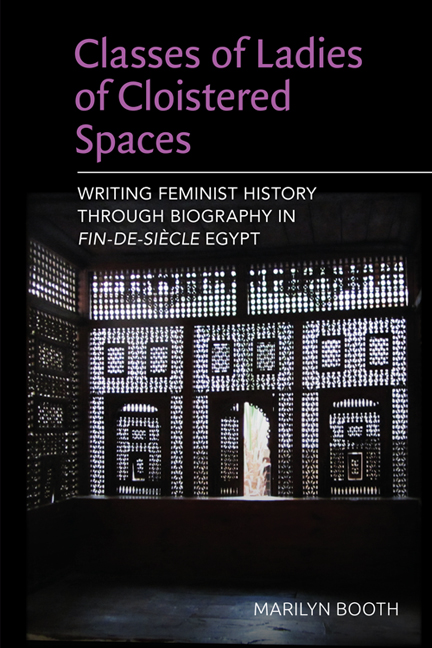Book contents
- Frontmatter
- Contents
- Acknowledgements
- Dedication
- I Pearls Scattered: An Introduction
- II A Women's World History, in the World of Arabic Letters: A Reader's View
- III Founding Mothers, Speaking Sisters: Lineaments of Community in History
- IV Writerly Pursuits: A Compiler's Archive
- V A Beckoning Compass, Circulating Lives: The Bustani Encyclopedia and Other Nineteenth-century Sources
- VI Interlocutors? Men Authoring Women's History in the 1890s
- VII Framing a History of the Present: or, Did the Pearls Scatter to the World's Fair?
- VIII Violent Romances: The Bodily Drama of Patriarchal Trauma
- Conclusion: A World of Women, Feminist History and the Importance of the Feminine Signature
- Appendix I: Translations
- Appendix II: List of Fawwaz's Pearls
- Notes
- Bibliography
- Index
V - A Beckoning Compass, Circulating Lives: The Bustani Encyclopedia and Other Nineteenth-century Sources
Published online by Cambridge University Press: 05 August 2016
- Frontmatter
- Contents
- Acknowledgements
- Dedication
- I Pearls Scattered: An Introduction
- II A Women's World History, in the World of Arabic Letters: A Reader's View
- III Founding Mothers, Speaking Sisters: Lineaments of Community in History
- IV Writerly Pursuits: A Compiler's Archive
- V A Beckoning Compass, Circulating Lives: The Bustani Encyclopedia and Other Nineteenth-century Sources
- VI Interlocutors? Men Authoring Women's History in the 1890s
- VII Framing a History of the Present: or, Did the Pearls Scatter to the World's Fair?
- VIII Violent Romances: The Bodily Drama of Patriarchal Trauma
- Conclusion: A World of Women, Feminist History and the Importance of the Feminine Signature
- Appendix I: Translations
- Appendix II: List of Fawwaz's Pearls
- Notes
- Bibliography
- Index
Summary
If most of the titles in Fawwaz's bibliography were premodern sources, it included a few nineteenth-century sources, Zihni's work and others. Indeed, it turns out that some of her citations of Ibn al-Athir and other early authors were likely not taken directly from her reading of them but via contemporary sources. This chapter focuses on nahda intertextuality, using Pearls Scattered as a lens onto the ways nineteenth-century scholars borrowed across confessional and territorial divides. These practices, I argue, challenge our tendencies as later scholars to categorise thinkers and works according to opposing ideological pathways we have defined, such as west-leaning versus adamantly indigenous, or secular versus religiously embedded. Although Fawwaz has been regarded as one of, or aligned with, Islamically focused nationalists, that is complicated by certain of her writings, her decisions about biographical inclusion, and perhaps most of all her use of sources. This chapter focuses on four nineteenth-century sources she names and the uses she made of them: Butrus al-Bustani's Da'irat al-ma‘arif, the periodicals al-Muqtataf and al-Lata'if, and Yuhanna Abkariyus's world history, Qatf al-zuhur fi ta'rikh al-duhur. All four were products of Arab intellectuals raised and trained in Ottoman Syrian Christian circles. Like Fawwaz, all looked outward toward the world and used print to encompass it for local (and sometimes far-flung) readers, bringing the world home to an audience increasingly conscious of the transnationality that was shaping their lives, and that had shaped history. Even if they drew upon and looked back to the massive intellectual productions of Arab predecessors, these globe-rendering encyclopedic projects were very much a product of their late-colonial but also cosmopolitan moment.
The Lebanese writer and educationist Butrus al-Bustani (1819–83) published the initial volume of the first modern-style Arabic-language encyclopedia in Beirut in 1876. Though one could argue that al-Bustani's project was an iteration of the broadly focused Arabic multi-genre compilations and Islamic biographical dictionaries produced centuries earlier, Da'irat al-ma‘arif (The Compass of Knowledge) was a new presence, and so its editors intended (al- Bustani pere and sons, nephews and possibly daughter).
- Type
- Chapter
- Information
- Classes of LadiesWriting Feminist History through Biography in Fin-de-siecle Egypt, pp. 153 - 204Publisher: Edinburgh University PressPrint publication year: 2015



